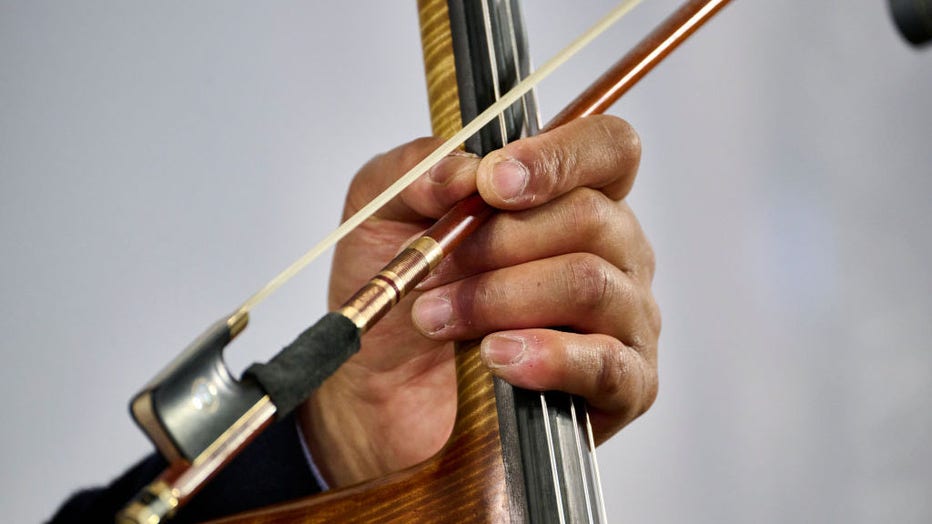The 3 things a person can do to keep peak brain health, according to researchers

FILE - Two women talk on a park bench on Sept. 27, 2020, in Vancouver, Canada. (Photo by Andrew Chin/Getty Images)
Newly-published research on keeping the human brain sharp emphasizes the old adage, "use it or lose it."
A research paper, published last month in the journal Brain Sciences by scientists in Norway, looked at the key factors related to maintaining a person’s brain function as they age. They analyzed previous research in the field of brain health, offering 101 references to articles on how to keep the brain’s grey and white matter in shape — the keys to our nervous system.
"Three factors stand out if you want to keep your brain at its best," Hermundur Sigmundsson, a professor at the Norwegian University of Science and Technology's (NTNU) Department of Psychology, said in a statement.
These factors, physical exercise, being social, and having strong interests, "help to develop and maintain the basic structures of our brain as we get older," Sigmundsson said.
3 factors to keeping brain’s gray and white matter ‘in shape’
The researchers note how the brain should function its best — think learning, remembering, and reasoning — when the gray and white matter is kept "in shape."
Gray matter in the brain is needed for cognitive functions. It refers to regions throughout the brain where nerve cells – known as neurons – are concentrated, according to Dr. Christopher M. Filley, a professor of neurology and psychiatry and the director of the behavioral neurology section at the University of Colorado Medical School. Filley was not involved with the research paper.
White matter is comprised of billions of axons, which are like long cables that carry electrical signals and connect to each other at junctions called synapses. Many axons are insulated with myelin, a layer of mostly fat that speeds up communication between neurons — which is crucial for all brain functions, Filley explains.
The comprehensive paper notes how physical fitness is important for peak brain health.
"An active lifestyle helps to develop the central nervous system and to counteract the aging of the brain," according to Sigmundsson and his colleagues.
Relationships also help. Being with people, such as through conversation or physical contact, supports good brain function.
"Relationships with other people, and interacting with them, contribute to a number of complex biological factors that can prevent the brain from slowing down," Sigmundsson said.
Lastly, passion and having strong interests can go a long way. This can include learning a new instrument or another type of hobby and taking on new challenges.
"Passion, or having a strong interest in something, can be the decisive, driving factor that leads us to learn new things," Sigmundsson said. "Over time, this impacts the development and maintenance of our neural networks."

FILE - A person holds a cello on March 29, 2022, in Lisbon, Portugal. (Photo by Horacio Villalobos#Corbis/Corbis via Getty Images)
Sigmundsson, who collaborated with master's student Benjamin H. Dybendal and associate professor Simone Grassini at the University of Stavanger on the paper, stressed how individuals have to exercise their brain so it doesn't decay.
"Brain development is closely linked to lifestyle," he said. "Physical exercise, relationships, and passion help to develop and maintain the basic structures of our brain as we get older."
This story was reported from Cincinnati.

